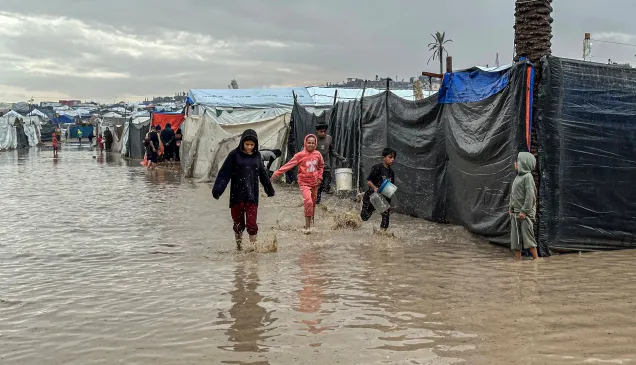When Women Support Each Other, Incredible Things Happen
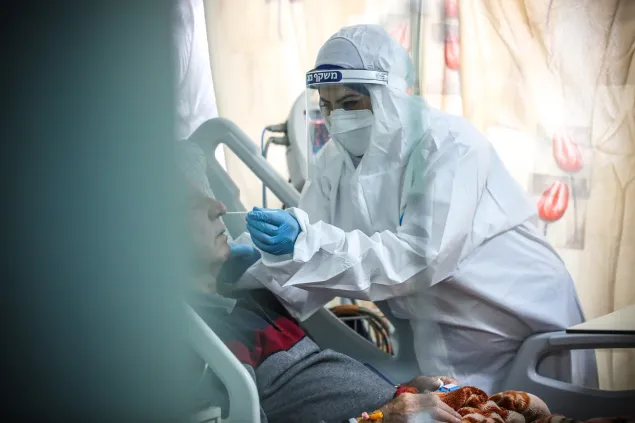
Aya Hajajreh, 28, is a nurse in the COVID-19 ward in Al-Maqassed Hospital in Jerusalem. During the peak of the pandemic, Aya, six-months pregnant, insisted on remaining on the frontline to help save the lives of COVID-19 patients, while risking her own health and that of her family and three children.
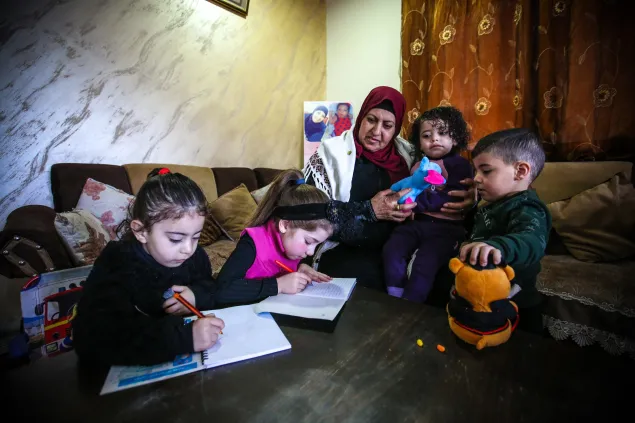
The support Aya receives from her mother and sister is vital, especially when she works nights.
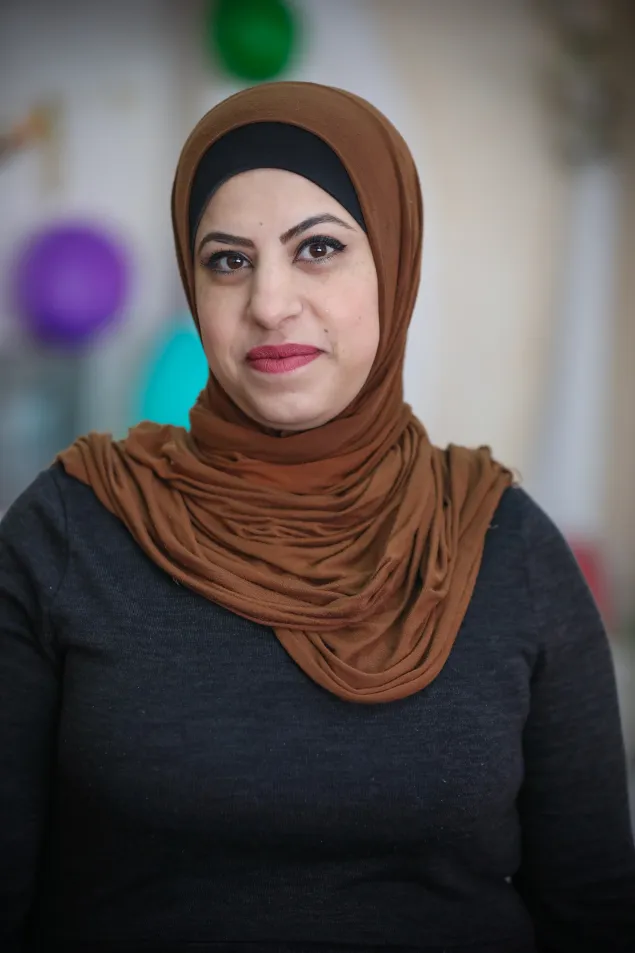
They attend to her kids’ needs and make sure she can fulfill her duty as a nurse. “I constantly encourage Aya to continue working because, without medical teams, families will suffer and might even lose their loved ones,” says Aya’s mother.
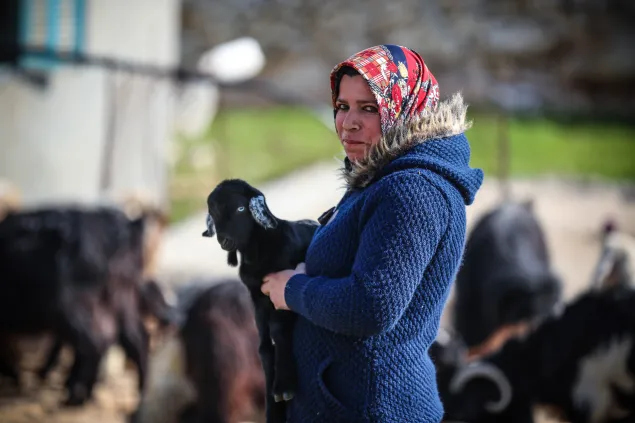
Nayfa & Fatma – Lady Shepherds
Fatma is one of three shepherding sisters living in Kisan village, south of Bethlehem city. The three sisters and their mother own about 30 livestock, with which they earn a living.
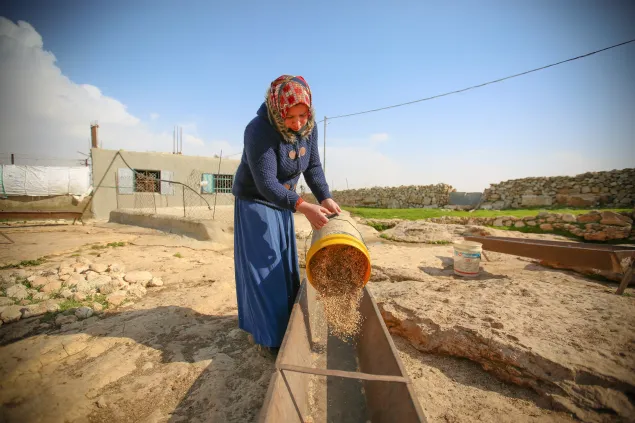
They do the grazing themselves. Because of COVID-19, merchants are no longer able to come to the village to buy their homemade dairy products. Vets can’t come either. Rising to the challenge, the lady shepherds developed a system of shared responsibilities, where Fatma and her 90-year-old mother would head to the city-center market to sell their products, while Nayfa would take care of the livestock and cook.
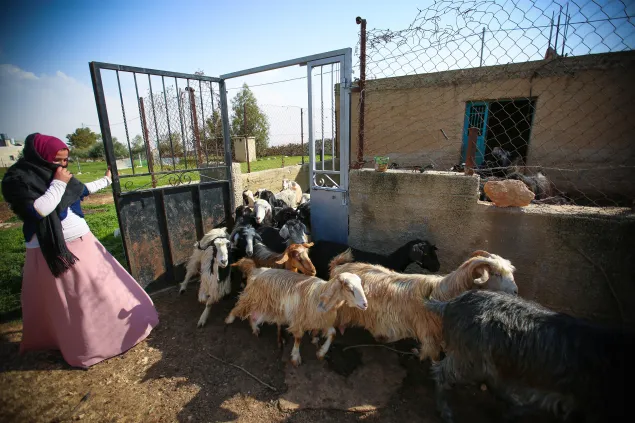
“I can’t imagine how my life would look without the help of my mother and sisters. Without their support, life here would be unbearable,” says Nayfa.
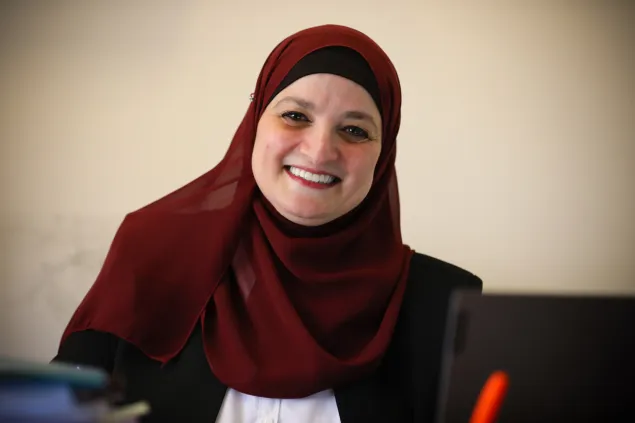
Nancy Al-Taweel & Her Best Friend – PhD student/ Educational Adviser
“I am an educational adviser by day, a student by night, and a full-time mother of five children, three of which have special needs,” says Nancy, 48, who is pursuing her Ph.D. in Special Education in Ramallah.
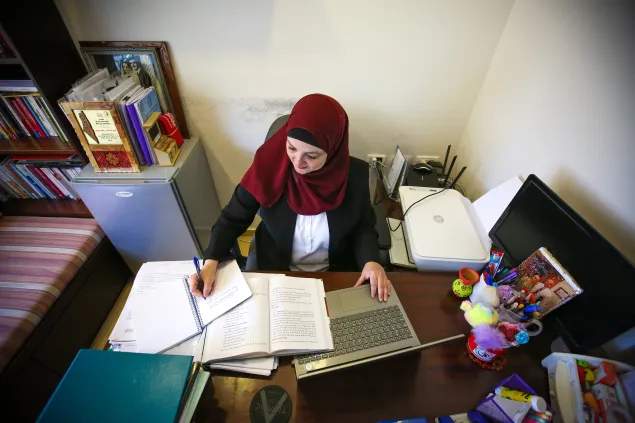
During the COVID-19 crisis, Nancy has had to juggle the responsibilities of family life with a full-time job. But with Hama on her side, Nancy managed to put a rotation system in place where Hama and her daughter would stay with the children, while she would study or spend quality time with her husband.
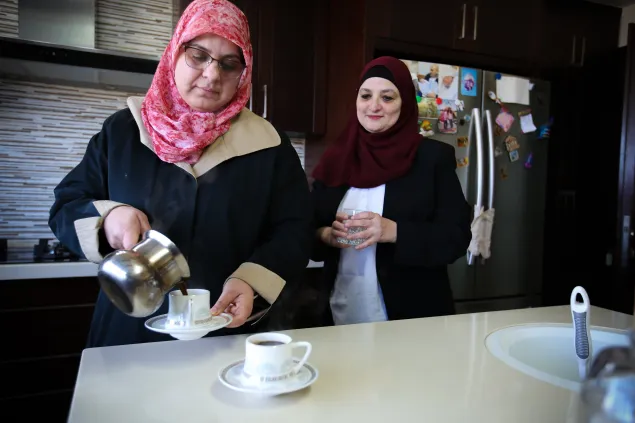
“Being Nancy’s friend is extremely rewarding. She is patient, ambitious, and her smile is contagious! She radiates positive vibes and I’m so lucky to have her as a friend,” says Hama.
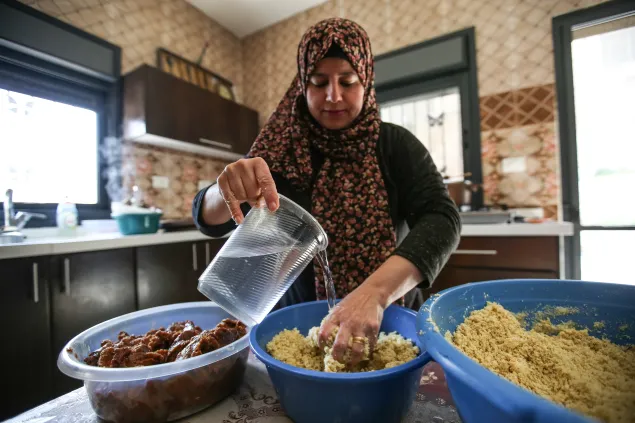
Manal Nofal, “Um Ameer” & Her Friend – Owner of catering initiative
“Income has decreased by 70% during the pandemic. I had to let my team go and continue cooking from my own kitchen,” says Um Ameer, the owner of a catering initiative in Asira ash-Shamaliya, a town in Nablus Governorate.
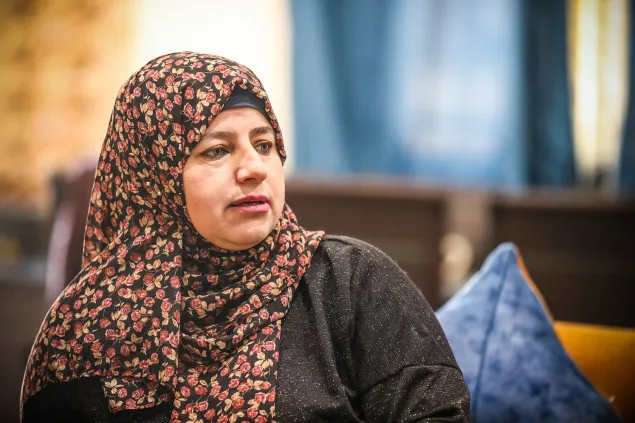
Um Ameer is grateful to have found women standing by her side to help her through these most difficult of times, particularly her friend, Soumaya, who has taken it upon herself to promote Um Ameer’s catering services and help her out with the preparation and packaging of orders.
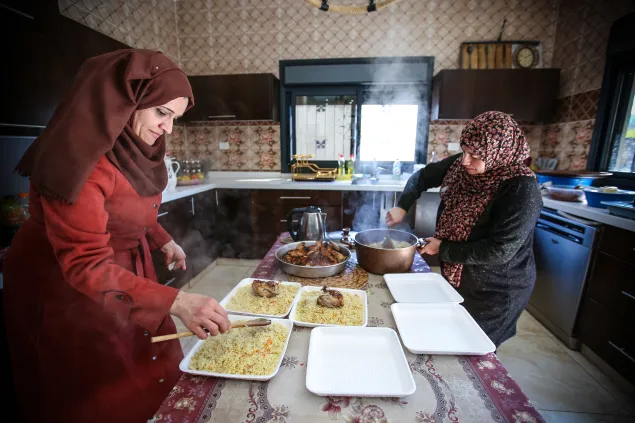
“I believe financial independence is a priority for women. I help other women in my town achieve their goals and dreams because I was once deprived of that,” says Soumaya.
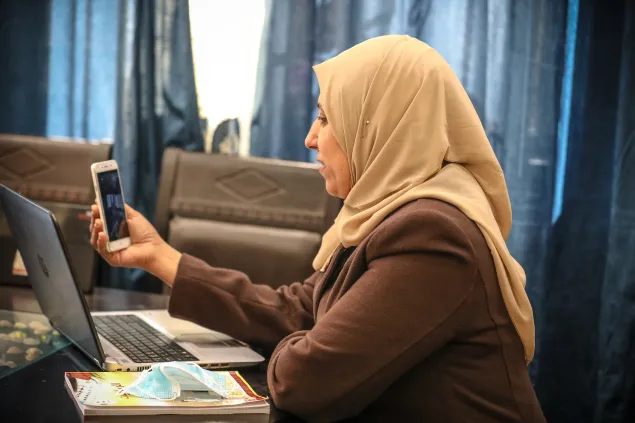
Mervat Jemlan & Her Mother – Teacher
“Our increasing dependence on electronic devices during the pandemic is a mixed blessing,” says Mervat, a school teacher in Asira ash-Shamaliya, a town in Nablus Governorate. While it’s true that Mervat’s mobile phone is the only way for her to keep in touch with her mother, her number one supporter, Mervat is still faced with the difficulty of keeping her students engaged during online classes, not to mention the challenges posed by the continuous disruption of education and repetitive lockdowns.
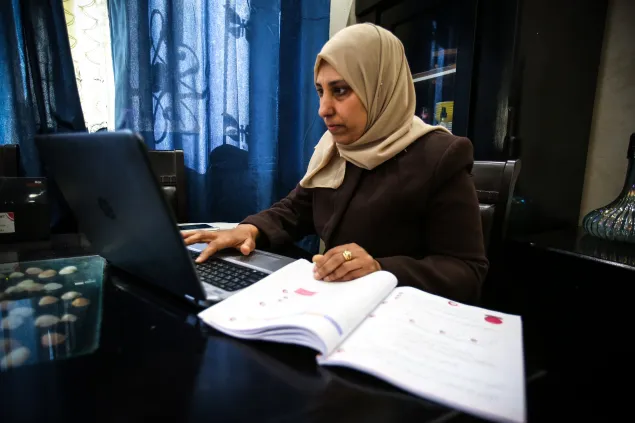
During the pandemic, Mervat and her four children must share electronic devices, making it almost impossible to balance between teaching and attending to her children’s educational needs.
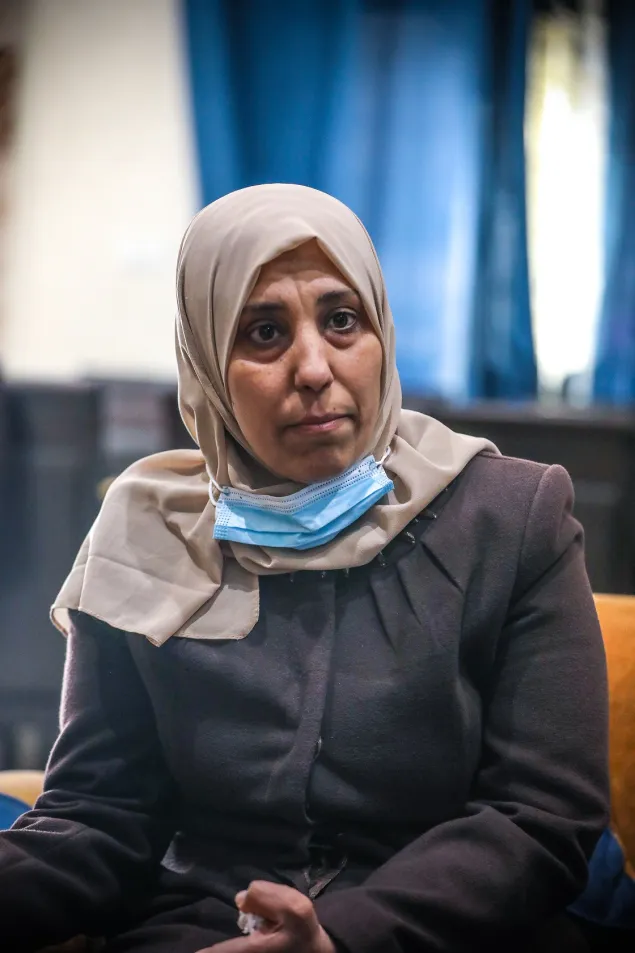
“Without my mother’s moral support and video calls I wouldn’t have been able to be there for my students or children,” says Mervat.
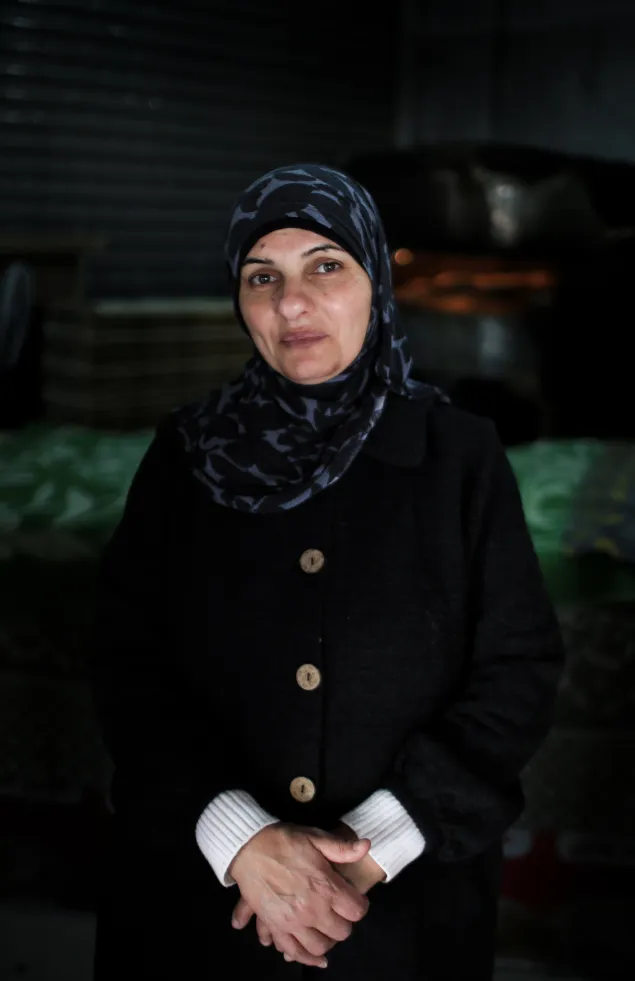
Ruba Abu A’ish – Owner of a bakery
“At the beginning, I was criticised by my community for working in a bakery, an unusual job for a woman in Gaza. But later, people accepted me more and I was encouraged by those around me,” says Ruba, 48, the owner of a bakery in Gaza City.
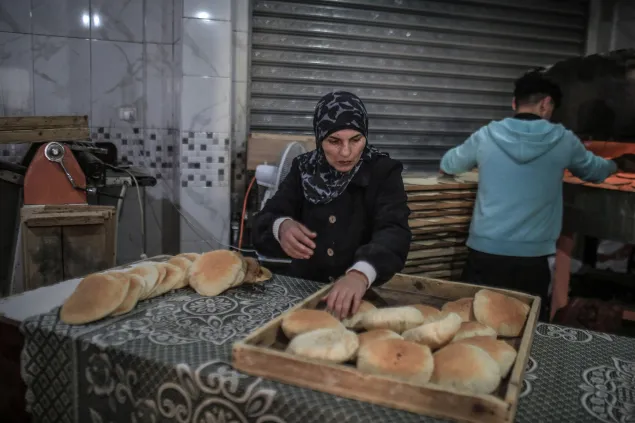
Life has been hard on Ruba, particularly during the pandemic, given the significant rise in unemployment in the Gaza Strip. To provide for her family, Ruba started her own bakery and now leads a team of men.
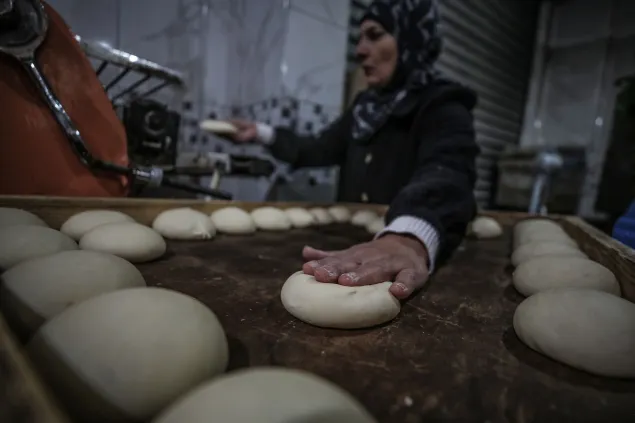
She invites the women in her area to come work at her bakery. “I suffered from unemployment for a long time. I want to create job opportunities for other women like myself. With support and encouragement, women can work miracles,” says Ruba.
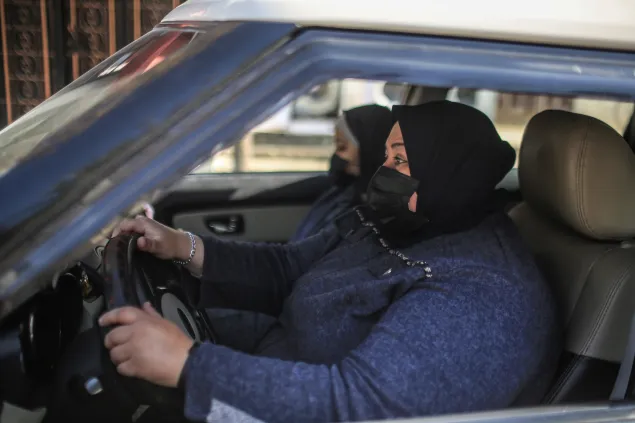
Naela Abu Jibba – Taxi driver
“During the pandemic, public transport has been disrupted as a preventive measure. As it has become difficult for Gazans in general, and women in particular, to move from one place to another, I decided to help. I started using my private car as a taxi,” says Naela, 39, a taxi driver who transports women and children only.
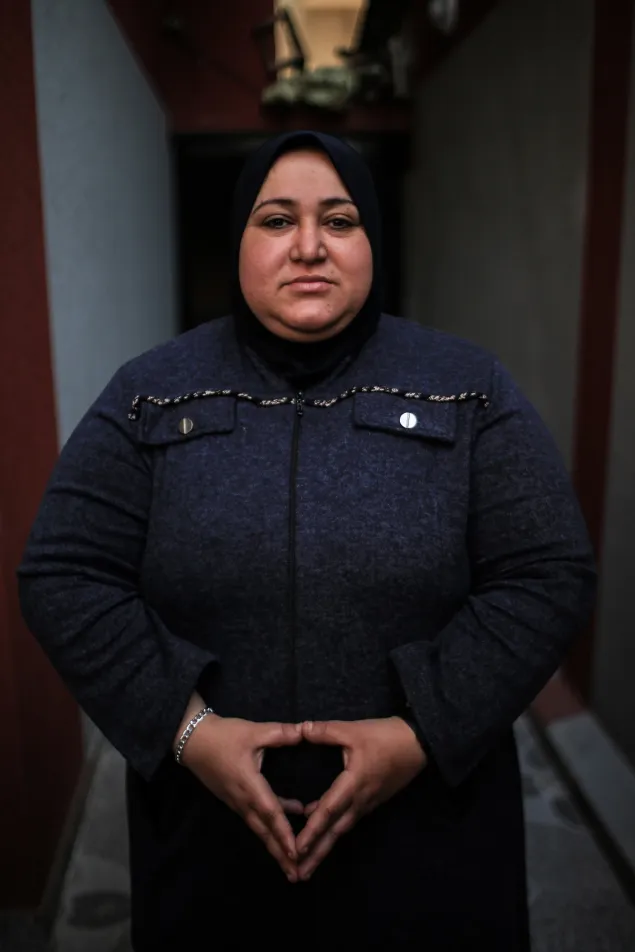
Naela is the first woman to drive a taxi in Gaza. She runs the business from her home, and she encourages other women to enter the field.
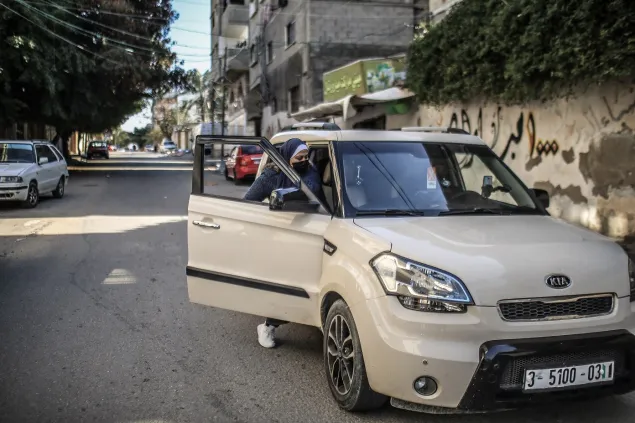
Given the high rate of unemployment rate in Gaza, especially during COVID-19, Naela has opened the floor for other women to join her and has already started receiving applications.
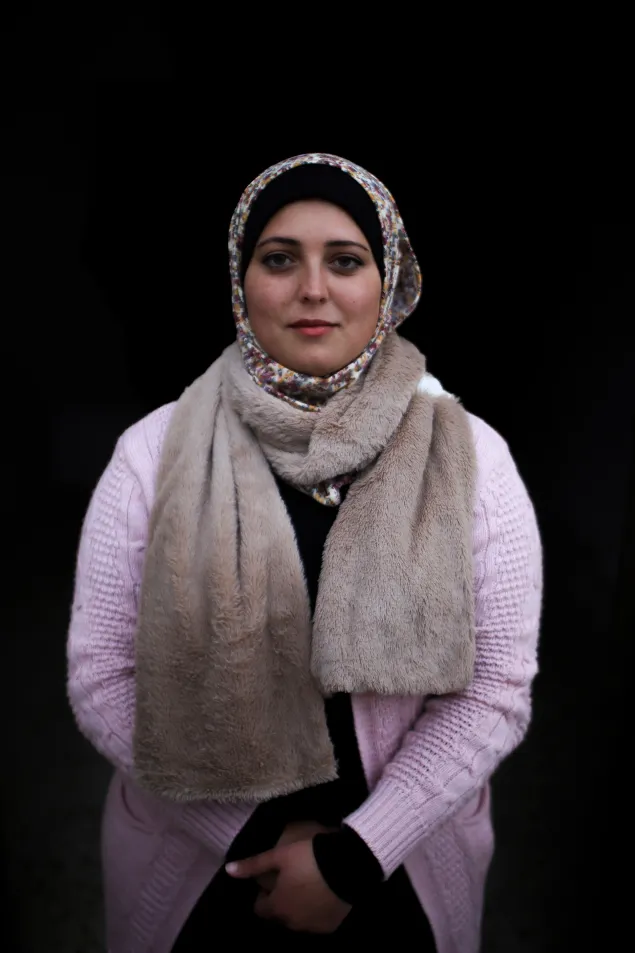
Aseel Najjar & Green Girls team – Pea-growing project owner
“Our project was at risk because of the pandemic. Lockdowns and movement restrictions made it difficult for us to promote our product,” says Aseel Najjar, a member of the “Green Girls” pea-growing project in Khan Younis. Aseel and her team of women, Ghayda’ and Nadine, had to be creative to continue their project, especially as it was still in its early phases when the pandemic hit.
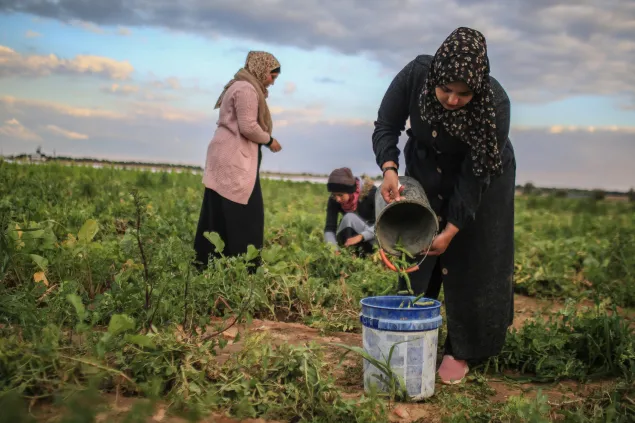
The girls created an online page offering delivery services for those interested in their green products.
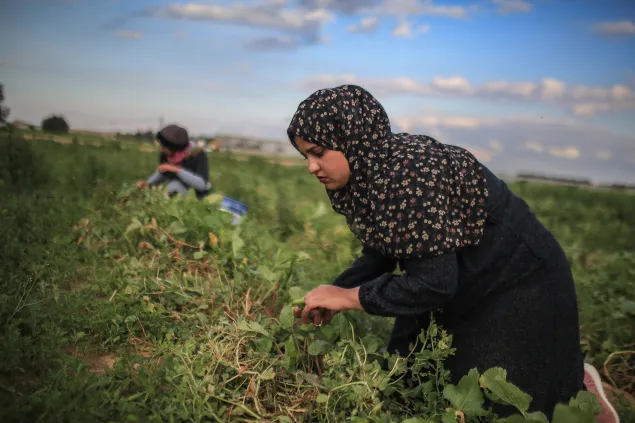
“Although we come from different academic backgrounds, we discovered ourselves through this project and we will support each other all the way,” says Aseel.
Since the beginning of 2020, the COVID-19 pandemic has taken its toll on people worldwide, particularly on women, and the occupied Palestinian territory was no exception. Already dealing with movement restrictions and economic hardship for decades, the women of Palestine now had to succeed in the face of additional obstacles and difficulties brought on by the pandemic.
On International Women’s Day this year, we want to celebrate Palestinian women who took on the challenge posed by the pandemic and stood by one another. They are teachers, shepherds, nurses, businesswomen, students, farmers, taxi drivers, bakers, mothers, sisters, friends, and most importantly, they are each other’s number one supporters. The following stories have proved that a woman alone has power, but collectively they have even more.



